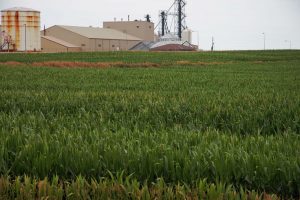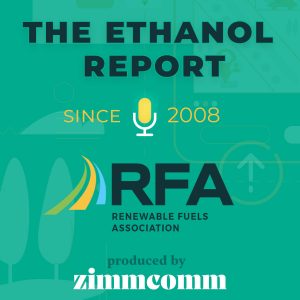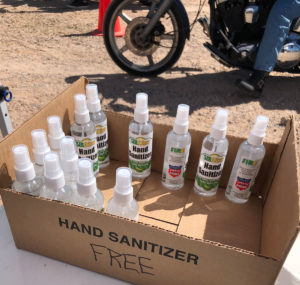 During a briefing on storm damage in Iowa Tuesday, President Donald Trump heard from Sen. Joni Ernst (R-IA) about issues facing the ethanol industry, particularly the threat of the Environmental Protection Agency granting retroactive small refinery exemptions for previous years.
During a briefing on storm damage in Iowa Tuesday, President Donald Trump heard from Sen. Joni Ernst (R-IA) about issues facing the ethanol industry, particularly the threat of the Environmental Protection Agency granting retroactive small refinery exemptions for previous years.
“Our farmers would love to know that with these gap year waivers that the oil refineries are submitting to the EPA, that we just dispense of those,” Sen. Ernst told the president. “Obviously with the crop damage that would be a great step forward.”
Sen. Ernst was one of several Iowa officials who met with the president about crop damage from the devastating derecho that torn through the state August 10 with hurricane force winds. Early estimates indicate almost $4 billion in damage from loss of crops and building such as grain bins.
Ernst explained the impact COVID has had on the ethanol industry and said farmers would come back stronger than ever, but they just need the EPA to follow the intent of the law with the Renewable Fuel Standard. “We’ll speak to them,” said Trump. “I’ll do it myself.”
Listen to the conversation here:
Sen. Ernst talks ethanol with Pres. Trump 1:39



 Scientists at USDA’s
Scientists at USDA’s  The
The 
 Austin and Evan Ludowese from south central Minnesota have been proud to help promote the good news about ethanol at the Sturgis Motorcycle Rally since 2015.
Austin and Evan Ludowese from south central Minnesota have been proud to help promote the good news about ethanol at the Sturgis Motorcycle Rally since 2015.  During a visit to Wisconsin this week, Environmental Protection Agency Administrator Andrew Wheeler was once again questioned about the status of so-called “gap year” waiver requests from refineries asking for relief from their Renewable Fuel Standard obligations from previous years.
During a visit to Wisconsin this week, Environmental Protection Agency Administrator Andrew Wheeler was once again questioned about the status of so-called “gap year” waiver requests from refineries asking for relief from their Renewable Fuel Standard obligations from previous years. President Donald Trump was asked about efforts to lower or eliminate Brazil’s tariffs on U.S. ethanol during a
President Donald Trump was asked about efforts to lower or eliminate Brazil’s tariffs on U.S. ethanol during a  The atmosphere is a little different this year for the 2020 Sturgis Motorcycle Rally at the Buffalo Chip Campground, but ethanol is still in big demand – especially hand sanitizer.
The atmosphere is a little different this year for the 2020 Sturgis Motorcycle Rally at the Buffalo Chip Campground, but ethanol is still in big demand – especially hand sanitizer. 